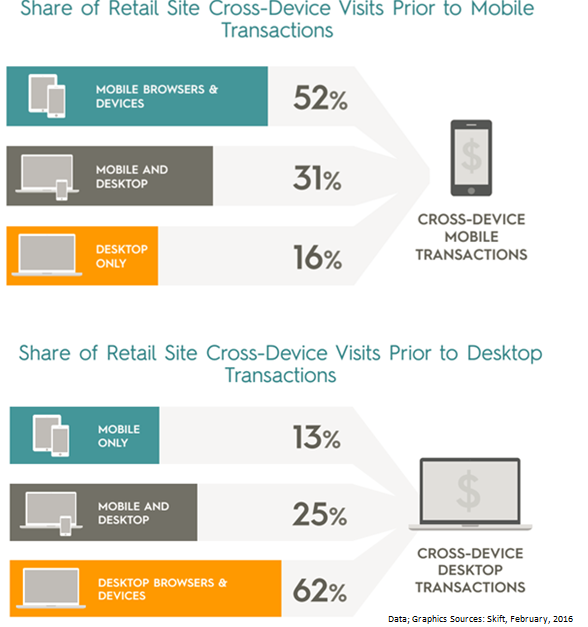Innovative Tour Operator Software drives Sales & Profits (does yours?)
By David Eddy on Dec 25, 2015 7:00:00 AM

The tour operator travel business grew in 2015 and remains highly competitive, circumstances which are likely to remain during 2016. This means tour companies ca n’t count on just long hours and hard work to keep them successful and competitive – they’ll have to also work smarter and plan better than ever before to stay ahead of existing and emerging competitors.
n’t count on just long hours and hard work to keep them successful and competitive – they’ll have to also work smarter and plan better than ever before to stay ahead of existing and emerging competitors.
In order to do that, management must shake off the notion that tour operator software solutions are just about scheduling services, managing inventory and tracking changes. The fastest growing tour companies have another view of tour systems; they look upon travel technology as a differentiator – a tool for increasing value for their customers and setting them apart from other tour businesses – and hold that investment to high performance standards.
The Changing World of Travel Revenue Management
It’s easy – and dangerous – for a company to get complacent about the capabilities of their software systems. A competitor who upgrades to a new bus fleet is a highly visible threat. The competitor who upgrades to new technology? Not so much. Yet, when low package prices hit a tour market, the company who has software that can apply analytics to inventory pricing is a formidable opponent. The company forced to extract data and build excel spreadsheets is at a serious disadvantage.
Throughout the travel industry – and tour operations are no exception – the methods of travel revenue management are changing. While the primary objective remains the same - to maximize revenues from a fixed inventory; e.g. a hotel with a certain number of rooms or a cruise line with a set number of cabins – practices in the past were limited to the straightforward scope of optimizing fixed inventory revenues with pricing and allocation tactics.
Today, the scope of revenue management has taken on characteristics of supply chain management, encompassing additional elements, such as distribution channel management and pricing mechanisms. For example, the hotel can expand travel distribution channels and maximize revenues by allocating certain room inventory to travel resellers – for example, tour companies - who combine the rooms with transportation services, restaurants and specialties (i.e. day excursions) for sale to consumers.
This new type of revenue management is the future of the travel industry because it allows:
Customization: Unique travel products are possible when tour companies can combine and manage multiple travel services.
Personalization: With innovative solution software, tour companies can go beyond customization to truly personalized travel experiences for individual customers.
Higher profit margins: By avoiding travel product commoditization and price-point purchase decisions, travel businesses can create greater value that supports higher profits.
What to look for in Tour Operator Solutions
Along with traveler preferences and revenue management, travel technology is also changing rapidly. This means any tour company with a system more than three years old needs to check out what’s currently available – and look particularly for the following features and capabilities:
Flexible: no one knows where the travel industry will be in five years, but everyone knows it will be very different from today. Tour software must be flexible enough to mirror industry changes quickly and inexpensively; e.g. modular design for plug and play expansion of functionality.
Extensible: software must also mirror a company’s growth easily and inexpensively. For example, managing distribution channels and resellers may not be in scope today, but could be in another year. The chosen system must accommodate and support that growth without expensive and disruptive development or integration projects.
Transformational: software shouldn’t put limits on the growth it will support, so it must be transformational for current operations. For example, transformation tour software will deliver:
- Product & Services modeling: Revenue and profitability of new products & services can be modeled under different scenarios before release.
- Reseller support: Resellers can search, make & manage reservations; extract vouchers and other data into a secure account portal. System automatically issues reseller invoices.
- Email alerts and warnings: Email warnings can be configured, and rules applied, for warnings on status or upcoming events – imminent reservation cancellations; incomplete information, etc.
- Pricing: Revisions or updates to products or services can be made on the company’s side or the provider can be enabled to do it via an extranet connection.
- Data and Analytics: the software solution must support robust data and applied analytics. There should be advanced reporting tools – for both the tour company and resellers – leveraging rationalized data formats and a central repository.
At dcs plus, we’re confident that time spent reviewing our tour solution – called AIDA, will reveal the impact these innovative features can make, and why it’s one of the fastest growing travel software products.
- travel technology (60)
- Travel Industry (49)
- travel agency (31)
- travel erp (31)
- travel trends (28)
- travel booking system (23)
- TINA (21)
- travel company (19)
- Tour Operator (18)
- Product updates (17)
- Travel Management Company (17)
- AIDA (15)
- TBS (15)
- Business Travel (14)
- dcs plus news (14)
- tour operator solution (14)
- travel website (14)
- travel erp system (13)
- Mobile App (12)
- Travel App (12)
- mid back office solution (12)
- trends (12)
- Corporate Travel (11)
- Industry Events (11)
- Mobile Technology (11)
- TMC (11)
- travel agents (11)
- erp (10)
- erp system (10)
- Tour Operators (9)
- Travel booking engines (9)
- dcs plus (9)
- online travel agency (9)
- travel agent (9)
- Mobile Bookings (8)
- travel (8)
- travel agencies (8)
- 2017 (7)
- Business Traveler (7)
- Mobile Travel (7)
- travel business (7)
- travel software (7)
- Digital Technology (6)
- Insider (6)
- Millennials (6)
- Online booking systems (6)
- Travel Management Companies (6)
- process automation (6)
- travel companies (6)
- Big Data (5)
- Partners interviews (5)
- Tour Operator Software (5)
- customer retention (5)
- travel agency technology (5)
- Booking engines (4)
- CSBT (4)
- Mobile Device (4)
- Mobile travel apps (4)
- OTAs (4)
- Static databases (4)
- Tour Companies (4)
- Travel Policy (4)
- Travel booking systems (4)
- Travel suppliers (4)
- back office automation (4)
- corporate self booking tool (4)
- millennial travelers (4)
- online travel (4)
- responsive travel website (4)
- technology (4)
- travel website conversion (4)
- 2016 (3)
- Content mapping (3)
- Databases (3)
- Demographics (3)
- Food and Adventure Tourism (3)
- Mobile Apps (3)
- Travel Distribution Channels (3)
- Travel Management Software (3)
- Travel customers (3)
- Travel history (3)
- anniversary (3)
- automated processes (3)
- content matching (3)
- global travel industry (3)
- social media (3)
- travel agency workflow (3)
- travel back office (3)
- travel marketing (3)
- travel process automation (3)
- AI in travel (2)
- Advanced Booking Systems (2)
- B2B Travel Resellers (2)
- Bleisure (2)
- Branding (2)
- Business Process Automation (2)
- Business Travelers (2)
- Customer engagement (2)
- Financial Reporting (2)
- Food Tourism (2)
- Inbound Marketing (2)
- Infographic (2)
- Leisure Travel (2)
- Saas (2)
- Templates (2)
- Travel Costs (2)
- Travel bookings (2)
- Travel start-up (2)
- Travel website abandonment (2)
- WTM 2016 (2)
- abandoned travel bookings (2)
- engagement marketing (2)
- internet booking engine (2)
- millennial traveler (2)
- new travel company (2)
- office (2)
- online reputation management (2)
- online travel reviews (2)
- reporting (2)
- software (2)
- start-up tips (2)
- travel agency management (2)
- travel agency website (2)
- travel experience (2)
- travel mobile app (2)
- travel packages (2)
- travel reservation system (2)
- travel system (2)
- travelers (2)
- web-based travel erp (2)
- 2020 (1)
- 360 Customer View (1)
- Advanced Accommodation Contract Management (1)
- Adventure travelers (1)
- Apps (1)
- B2B Reseller (1)
- B2B Resellers (1)
- B2C (1)
- BI Reporting (1)
- Budget traveler (1)
- Cancellations (1)
- Chat (1)
- Chinese millennial (1)
- Cloud (1)
- Cognitive computing (1)
- Comparison shopping (1)
- Conference (1)
- Contact matching (1)
- Content (1)
- Cruise (1)
- Culinary traveler (1)
- Customer relations (1)
- Digital Innovation (1)
- Digital Natives (1)
- Documents (1)
- Emerging market travelers (1)
- Emerging markets (1)
- Errors (1)
- Experimental travel (1)
- Financial Dashboard (1)
- Import rates (1)
- Instant messaging (1)
- Integrate with Accounting Software (1)
- Internet (1)
- Luxury traveler (1)
- Mobile Transaction (1)
- Mobile payments (1)
- NDC distribution (1)
- Operational Reporting (1)
- Reseller networks (1)
- Resellers (1)
- Response (1)
- Subagents Network (1)
- TINA Academy (1)
- TTE (1)
- Travel Reseller Network (1)
- Travel Revenue Management (1)
- Travel booking problems (1)
- Travel finance reporting (1)
- Travel stats (1)
- WTM (1)
- abandonment (1)
- accomodations (1)
- advanced reporting (1)
- airline direct connect technology (1)
- ancillary services (1)
- cloud computing (1)
- collection (1)
- collection challenges (1)
- common data model (1)
- conversion rates (1)
- corporate mobile app (1)
- cost control (1)
- credo ventures capital invests in dcs plus (1)
- customer reviews (1)
- data analysis (1)
- dcs plus credo investment (1)
- dcs plus credo ventures (1)
- deloitte technology fast 500 EMEA (1)
- digital transformation (1)
- e-invoicing KSA (1)
- email marketing (1)
- email marketing for OTAs (1)
- erp e-invoicing (1)
- lost travel bookings (1)
- modern travel agencies (1)
- networks (1)
- new features (1)
- offers (1)
- online customer review (1)
- online reputation (1)
- online travel agencies (1)
- risk management (1)
- sales (1)
- senior travelers (1)
- shopping baskets (1)
- shopping carts (1)
- social network (1)
- standardized processes (1)
- static content (1)
- travel SaaS (1)
- travel account services (1)
- travel agency customers (1)
- travel agency profitability (1)
- travel analytics (1)
- travel blog (1)
- travel planning (1)
- travel reviews (1)
- travel shopping carts (1)
- travel software for agencies (1)
- travel software system (1)
- travel technology europe (1)
- travlist smart mobile app (1)
- trend (1)
- trusted adviser (1)
- trusted advisor (1)
- upsell functionality (1)
- vouchers (1)
- website traffic (1)
- zatca (1)
Subscribe by email
You May Also Like
These Related Stories

Tour Operator Trends and Technology

Travel Technology means Growth for Tour Operators


No Comments Yet
Let us know what you think